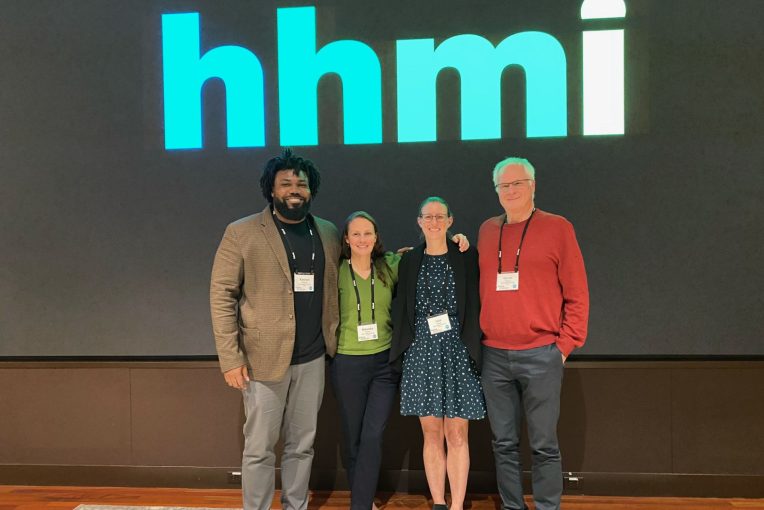A cross-disciplinary team of faculty and staff at Illinois State University has received a grant from the Howard Hughes Medical Institute’s (HHMI) Driving Change program.
The Driving Change program aims to effect lasting culture change on research university campuses by creating a more inclusive learning environment for all. The program focuses on undergraduate students who have historically been excluded from STEM (science, technology, engineering, and math) areas of study. The desire is to foster institutional change toward inclusive, equitable, and just STEM education. The ISU program will provide support to these students so that they may excel and become leaders in the STEM field, as well as professional development opportunities for STEM faculty and staff. The initiative, titled Science-IS-U Scholars as Catalysts for Institution Change in STEM, is led by faculty and staff from across campus including:
- Dr. Rebekka Darner, Center for Mathematics, Science, and Technology (CeMaST), project director
- Dr. Ben Sadd, School of Biological Sciences, project assistant director
- Dr. Lisa Tranel, Department of Geography, Geology, and the Environment
- Dr. Dan Holland, Department of Physics
- Dr. Susil Baral, Department of Chemistry
- Dr. Keenan Wimbley, University College
- Dr. Jennifer Friberg, Center for Integrated Professional Development (CIPD)
- Dr. Craig Gatto, associate vice president for academic administration
- Dr. Amy Hurd, associate vice president for undergraduate education
The program seeks to foster culture change through targeted professional development for STEM faculty, advisors, and administrators on topics for which we have identified misalignment between faculty and student perceptions of STEM climate at Illinois State, as well as through four program values. Program values emphasize the equity ethic, students’ psychological well-being, curiosity and scientific discovery, and knowledge generation.
The equity ethic refers to the desire to marshal one’s STEM expertise to pursue just, empathetic, and equitable solutions to societal problems. Valuing students’ psychological well-being refers to valuing students’ psychological well-being by fostering their autonomy to pursue their desired career path, their competence in achieving their goals, and a sense of belonging at both Illinois State and in their chosen STEM discipline. The program values pursuing scientific discovery and generating new scientific knowledge by mobilizing curiosity and engaging in scientific inquiry and exploration. Finally, the program values knowledge generation by valuing academic excellence across STEM disciplines by prioritizing learning, knowledge, and discovery over external rewards such as grades, while also striving to align enhanced knowledge with high achievement.
The Science IS-U Scholars program will elevate student voices in driving institutional change at Illinois State by engaging 40 STEM majors in a civic engagement-focused early arrival experience, a living-learning community throughout their first and second years, a research internship, and a program-specific seminar course.
According to Dr. Rebekka Darner, project director, “This project is built upon the successful Meyerhoff Program at the University of Maryland, Baltimore County, which has transformed that institution into a leading producer of Black and Latine scientists and engineers. UMBC’s program provides a framework for us to close equity gaps, and the Science IS-U Scholars program adapts that framework to ISU. We have been given an extraordinarily unique opportunity to foster the kind of culture change that enables such institutional transformation, which I believe will lead ISU to become well known for its equitable, inclusive, and just STEM education.”

